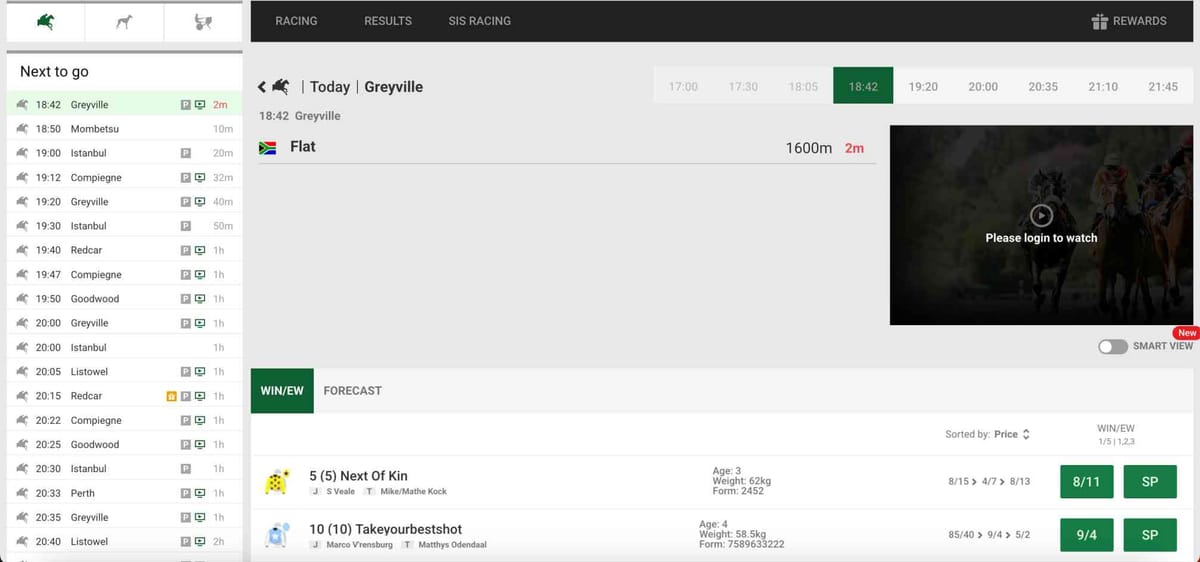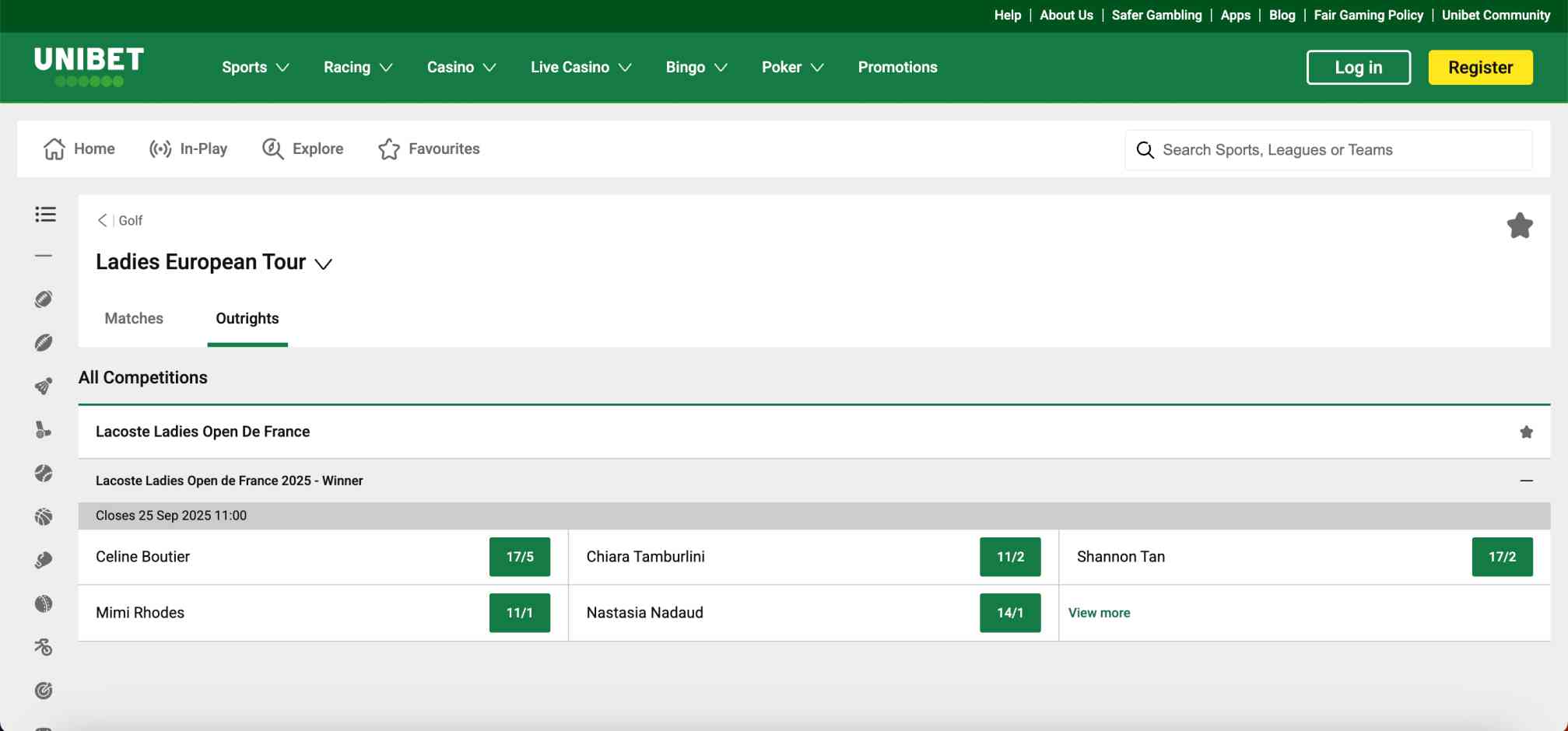What Does Dead Heat Mean on Unibet? A Clear Guide for Bettors
Learn how Unibet handles ties in sports betting, why payouts look smaller in certain results, and what to expect in markets where dead heats happen.

When a bet on Unibet is settled as a dead heat, it means two or more participants finished in a tie, and instead of voiding your bet, the bookmaker adjusts your payout by splitting your stake.
This rule comes up most often in sports where finishing positions matter—like horse racing or golf—so it’s important to understand how it works before placing bets in those markets.
Questions such as what does dead heat mean on Unibet? usually come from bettors who notice their returns are lower than expected, even though their pick technically placed.
In this guide, we’ll break down exactly how the stake adjustment is calculated, highlight the sports where dead heats occur most often, and share a few tips to help you bet smarter when ties are a real possibility.
How Unibet defines a dead heat
On Unibet, a dead heat occurs when two or more competitors cannot be separated by the official result. This is most common in sports where positions or finishing places matter, such as horse racing, greyhounds, or golf.
For example, if two horses cross the finish line together and the photo finish can’t determine a clear winner, the race is declared a dead heat. Rather than paying both bets in full, Unibet applies a fair split of the stakes.
How your payout is calculated when asking what does dead heat mean on Unibet?
Here’s where most players want clarity: how exactly the payout works. Unibet reduces your stake by dividing it by the number of tied participants, and then pays out on that reduced stake at the full odds.
So if you bet €20 on a golfer to finish in the top 5 at odds of 4.0, and two players tie for fifth place, your stake is halved to €10.
That €10 is then settled at 4.0, giving you €40 in returns, though sometimes players also ask how to cancel a bet on Unibet if they realize the rules might reduce their payout. The other €10 is effectively considered lost because of the tie.
In my experience, once you see it applied a couple of times, you realize it’s the fairest way to balance payouts when multiple outcomes share the same finishing position.

Common sports where Unibet applies dead heat rules
Horse racing is the classic example, and Unibet’s dead heat rule is standard across the betting industry for photo finishes.
Golf is another where I’ve seen players get surprised. In tournaments, ties for finishing places are incredibly common, especially in top 5, top 10, or top 20 markets.
Dead heat rules ensure everyone with a tied golfer gets some return, but it’s not the full payout you’d expect if your player had finished alone in that spot.
Occasionally, dead heats pop up in greyhounds or even niche sports, but horse racing and golf are where it really matters on Unibet.
Why Unibet uses the dead heat rule
The logic behind it is fairness. If two players tie for the same spot, it wouldn’t make sense to pay both bettors in full — the bookmaker would effectively be paying out more than it took in.
By splitting stakes, Unibet ensures both sides of the tie are rewarded, while keeping the payout structure consistent.
In my opinion, this rule feels balanced. You don’t walk away empty-handed when your pick ties, but you also don’t get an unrealistic win for what was essentially a shared outcome.
Tips for betting on markets where dead heat can happen
From what I’ve seen, being aware of dead heat rules helps manage expectations, especially on Unibet’s golf and horse racing markets.
If you’re betting on top 10 finishes in golf, for example, factor in that ties are very likely on the final leaderboard.
Some bettors prefer to back “each-way” options in racing or consider markets like “to win outright” if they want to avoid dead heat adjustments, while others want clarity on things like what happens if a football match goes to penalties on Unibet.
Personally, I find that knowing the risk of a reduced payout makes me size my stakes more carefully on placement markets.
Final thoughts on dead heat bets at Unibet
So, what does dead heat mean on Unibet? Simply put, it’s when your selection ties with others for the same finishing position, and your stake is proportionally reduced before being settled.
It can feel like a surprise the first time, but once you’ve seen it, it’s easy to understand.
In my experience, Unibet is very transparent about applying dead heat rules. You’ll see the adjustment in your bet history, and the calculations match the standard practice used across sportsbooks.
If you’re betting in markets where ties are common, it’s good to know ahead of time — that way, you won’t be caught off guard when your payout looks a little smaller than expected.
FAQs
What does dead heat mean on Unibet?
A dead heat on Unibet means your selection tied with others for the same finishing position, and your stake is split before being settled at full odds.
How does Unibet calculate payouts for dead heat bets?
Unibet divides your original stake by the number of tied participants and pays out at the full odds on the reduced stake.
Which sports on Unibet most often have dead heat results?
Horse racing and golf are the most common sports with dead heat outcomes, though ties can occasionally occur in greyhounds or niche events.
Why does Unibet apply dead heat rules?
Unibet uses dead heat rules to ensure fairness, preventing payouts that exceed total stakes when multiple competitors finish tied.
How can I avoid dead heat adjustments on Unibet?
You can minimize the risk of dead heat reductions by betting on outright winners or using each-way options in racing markets.
